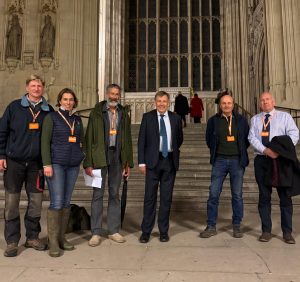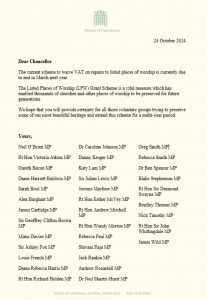Tomorrow, the House of Commons will debate the Data Protection Bill. This is a vital piece of legislation which is essential to ensuring that our laws are up to date and that we will be able to continue to exchange data with Europe once we leave the European Union. During its passage through the House of Lords, however, the Bill was hijacked to include provisions which would be deeply damaging to the freedom of our press.
The first Lords amendment would require the Government to set up a new inquiry into news publishers. There is indeed a case for an examination of the impact that the new internet giants like Facebook and Google are having on traditional print media. Neither employ a single journalist yet they are sucking revenue away from newspapers and are threatening the survival of many.
This is a real threat to our democracy as it may lead to many local councils and courts going unreported. I therefore very much welcomed the Prime Minister’s announcement last month of a review into the sustainability of our national and local press to see how government might help.
What the press does not need, however, is another Leveson Inquiry into events which took place more than 10 years ago. The revelations of phone hacking by the News of the World and other newspapers were shocking. The Select Committee that I chaired at the time played a part in exposing those practices which led to criminal prosecutions and the setting up of the Leveson Inquiry.
That inquiry sat for 15 months and cost more than £5 million. As a result, an entirely new body – the Independent Press Standards Organisation (Ipso) – was set up to adjudicate complaints against the press and to investigate abuse.
It is independent and has powers to impose real sanctions including front page corrections and fines. It now regulates 95 per cent of national newspapers by circulation and largely complies with Leveson’s recommendations.
There is no need to rake over once again the events of a decade ago at great cost, particularly when the media landscape has changed so dramatically. A further Leveson inquiry would not even cover the increasingly powerful news providers which are online and almost entirely unregulated.
An even more damaging amendment introduced by the Lords would force news publishers who are not members of a regulator approved by the Government’s recognition body to pay the costs of data protection actions even if the claim is unjustified and dismissed by the courts.
This clause mimics Section 40 of the Crime and Courts Act, which proposed the same penalties in libel and privacy actions. No national or major local newspaper has been willing to join such a regulator and so almost every publisher would be at risk. It would have a massive and chilling effect on investigative journalism and would make investigations such as those into the Paradise Papers or the Oxfam scandal impossible to publish.
These provisions are draconian, unnecessary and very possibly in breach of the European Convention on Human Rights. They have been condemned by organisations campaigning for civil liberties like Index on Censorship and English PEN. The Government was therefore absolutely right to announce last week that it does not intend to proceed with a second Leveson Inquiry and that it will repeal Section 40.
However, this announcement was attacked by the Labour Party, which is also making threats to take further measures to control the press. Recent revelations about Jeremy Corbyn’s past links with a Czech communist intelligence officer and the £500,000 funding of Tom Watson’s office by Max Mosley are clearly in the public interest. Neither are in breach of any press code.
Yet instead of addressing the issue, Corbyn responded by attacking the press and saying that change is coming. Such threats expose the real agenda of those who will be supporting the Lords amendments tomorrow – to muzzle the press and to subject it to Government controls. They must not succeed.


